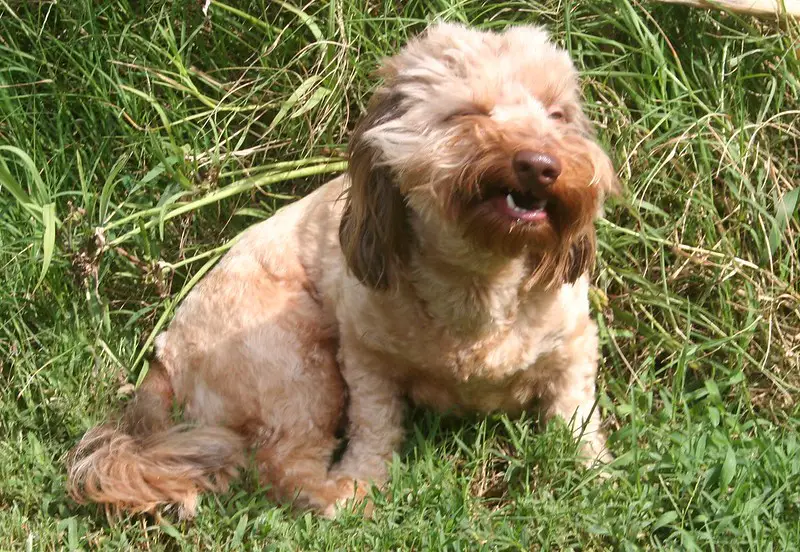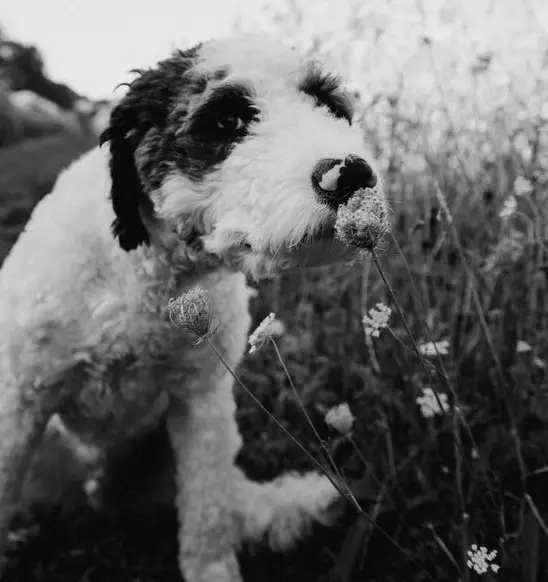Sleeping peacefully at night, flying in your dreamland, when suddenly you hear an odd and utterly sound of honking, grunting, or somewhat similar to oinking, which comes from your dog. Then all of a sudden, he’s fine like nothing happened. Your dog might be reverse sneezing.
So, Why is my dog reverse sneezing at night? The exact cause of reverse sneezing is not yet known; however, irritation at the back of the throat, sinuses, or nose might trigger an episode of reverse sneezing in dogs. Allergies, masses, and foreign bodies stuck in the airway might also cause reverse sneezing.
It can be pretty scary to see your dog reverse sneezing at night, and there may be times when you just do not know what to do, especially dogs can not really express what they want to say, so what causes reverse sneezing in dogs and what can you do to prevent it?
What is a Reverse Sneeze?
Reverse sneezing, also known as “backward sneeze” or “paroxysmal respiration,” can happen when the dog’s throat or soft palate becomes irritated. The soft palate of a dog is in the back area of the roof of the mouth. The irritation causes the soft palate or the throat of the dog to experience spasms in their muscles. During the reverse sneeze, the dog produces a loud snorting sound. He will also make long, rapid inhalations, and he will extend his neck and head and will try to stand still. While this looks like a serious problem in dogs, it is very common to experience reverse sneezing, especially for little pooches.
What’s the Difference Between a Dog Coughing and a Dog Sneezing?

Coughing and sneezing in dogs can sound similar, especially in the ears of an untrained and unfamiliar pet parent. Still, one can identify which is which by observing the many differences between coughing and sneezing. A dog coughing will cough out of his mouth, which makes a dry noise. On the other hand, reverse sneezing, as said earlier, involves rapid breathing through the nose, creating a pig-like snort. Reverse sneezing can also be mistaken for choking.
Why is My Dog Reverse Sneezing?
Sneezing is normal for dogs like it is for humans; it may be because of irritants like perfume or dust. Reverse sneezing, on the other hand, is different and is caused by something else.
Reverse sneezing in dogs can also happen after they feel overly excited or when the dog gets overheated frequently, so be sure your dog is sleeping in a well-ventilated, dust-free environment.
What Can I Do to Stop Reverse Sneezing in Dogs?
A dog’s reverse sneezing at night might be hard to deal with, most do not even require medical intervention, but there are ways to help your dog to stop reverse sneezing.
- Try to calm down your pet. Helping your pet to calm down can be a great help for them to stop sneezing so that they can also relax their throat. Offering water or stroking down their neck can be helpful. Also, assuring them that everything will be alright can help.
- Hold your pet’s nostril. This is one of the most common remedies to stop reverse sneezing in dogs. Hold the dog’s nostril and massage its throat lightly to help it calm down. By doing this, the dog can swallow a couple of times, which will then help to stop the spasm causing the reverse sneeze.
- Lightly blow on your pet’s face. Gently blow air into your dog’s nose. This can interrupt the dog’s inhalations during reverse sneezing.
- Carry the dog out. Inhaling fresh air can also help the dog stop the episode. It might be the air it was inhaling before that causes the spasms; thus, by letting him inhale fresh air, it can help it relax its throat and calm down.
- Check if it is allergy-related. Most dogs do not require medical attention regarding reverse sneezing; however, some veterinarians recommend antihistamines if it is severe, chronic, or allergy-related.
How to Prevent Reverse Sneezing in Dogs?

As said earlier, reverse sneezing might be because of allergens or irritants in a dog’s surroundings, so it is best to do things that will prevent the dog from reverse sneezing at all.
- Clean the sleeping area of the dog. By cleaning the pet’s sleeping area, the removal of the dust and other irritants can help to prevent reverse sneezing in dogs.
- Check if there are underlying problems. By giving the dog a regular check-up with the veterinarian, a pet parent can know if there is an underlying problem that may cause the reverse sneezing in dogs. Bring the pooch to the vet and check if he has a respiratory problem or an allergy.
- Bring the dog out for fresh air. Bringing the dog out to breathe in the fresh air can also help, as it can relax them. Moreover, this action can be a bonding time between the dog and owner.
When to See the Veterinarian?
While it is usually nothing to worry about, when the reverse sneezing episodes become more frequent and lengthier, it is best to see a veterinarian as soon as possible. An episode usually lasts for a minute or two.
It is important to know if an underlying problem causes the reverse sneeze to be more frequent. Here are the common underlying issues that might cause the reverse sneeze:
- Upper Respiratory infections – a honking cough is a common sign of an upper respiratory infection caused by bacteria or viruses.
- Asthma – an irritation to the lungs and the airways can also cause wheezing in dogs.
- Collapsing trachea – in some circumstances, a pet’s windpipe may collapse on itself, which may cause breathing difficulties and coughing.
- Heart disease – coughing, gasping, and retching might happen if there is a fluid build-up in a pet’s lungs which may occur if there is an underlying heart disease.
It isn’t easy to attend to a dog if you do not know what is happening to it, so it is very important to know everything there is to learn to act when something comes up again immediately. Reverse sneezing in a dog can be pretty normal, especially to small canines, so you need to relax so that your dog will know that everything will be fine.

